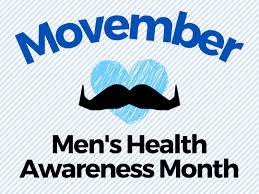June is Bowel Cancer Awareness Month – Bowel Cancer Australia’s signature event to raise awareness of Australia’s second deadliest cancer.
Bowel cancer claims the lives of 101 Australians every week (5,255 people a year) – but it’s one of the most treatable types of cancer if found early.
While the risk of bowel cancer increases significantly with age, the disease doesn’t discriminate, affecting men and women, young and old.
293 Australians will be diagnosed with bowel cancer this week (15,206 people a year).
Common symptoms of bowel cancer cancer include:
- A recent, persistent change in bowel habit
Such as looser, more diarrhoea-like poo, constipation, or going to the toilet more often, or trying to go – irregularity in someone whose bowel habits have previously been regular - A change in shape or appearance of your poo
For example, narrower poos than usual or mucus in poo - Blood in your poo or rectal bleeding
Bright red or very dark blood should never be ignored - Frequent gas pain, cramps
A feeling of fullness or bloating in the bowel or rectum - Unexplained anaemia
A low red blood count causing tiredness, weakness or weight loss - A feeling that the bowel has not emptied completely after going to the toilet
- Pain or a lump in the anus or rectum
- Abdominal pain or swelling
Not everyone experiences symptoms, particularly in the early stages of bowel cancer. The above symptoms may be suggestive of bowel cancer, but they can also be due to other medical conditions, some foods or medicines.
Don’t delay in talking to your GP if you are experiencing any of the described symptoms for two weeks or more, because when diagnosed early almost 99 percent of cases can be successfully treated.
Blood in the stool or rectal bleeding should never be ignored.
Bowel Cancer Australia recommends participating in screening appropriate to your personal level of risk.
For people at average or near average risk of bowel cancer, Australian medical guidelines recommend screening using a faecal immunochemical test (FIT) every 2 years between ages 50-74.
The guidelines also state GPs can offer a faecal immunochemical test every 2 years to people aged 45-49 who request it, after being fully informed of the benefits (and any possible harms) of testing. Book to see your GP to discuss screening and any symptoms you may be experiencing.








